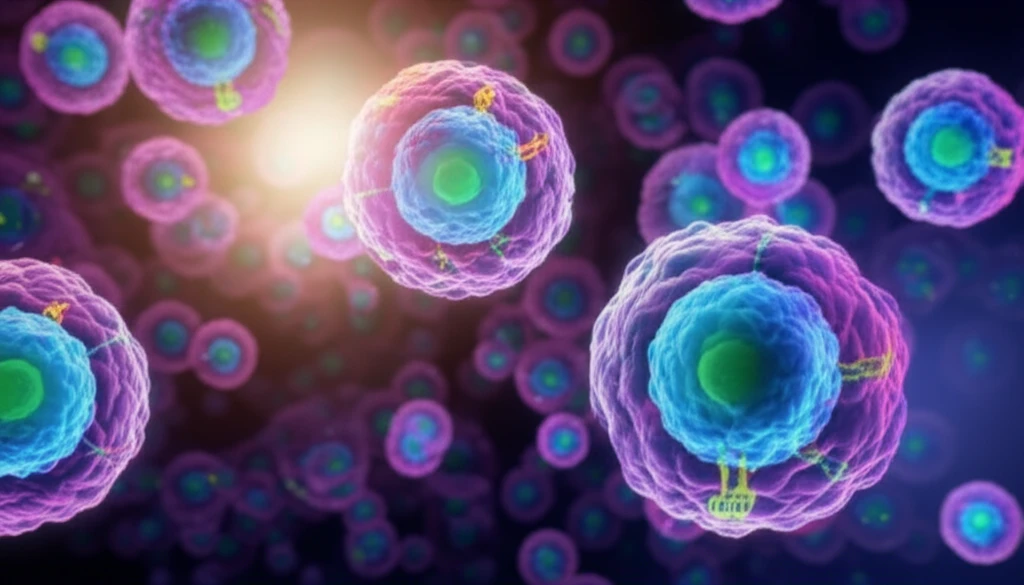
Decoding Colorectal Cancer: Is NG2 the Key to Future Treatments?
"Discover how a groundbreaking study identifies Nerve/Glial Antigen 2 (NG2) as a potential game-changer in colorectal cancer therapy, offering new hope for targeted treatments."
Colorectal cancer remains a significant health challenge, prompting researchers to constantly seek more effective and targeted treatments. One promising avenue involves identifying unique markers on cancer cells and their surrounding blood vessels. These markers can then be used as targets for new therapies that specifically attack the tumor while minimizing harm to healthy tissues.
Nerve/glial antigen 2 (NG2) is one such marker that has garnered increasing attention. NG2 is a transmembrane glycoprotein found on various cells, including tumor cells and the cells that make up tumor blood vessels. Its role in cell growth, movement, and the formation of new blood vessels makes it a compelling target for anti-cancer strategies.
A recent study published in 'Digestion' explores the expression of NG2 in colorectal cancer patients and its association with different clinical and pathological characteristics. This research aims to determine whether NG2 could be a valuable target for future anti-tumor therapies, potentially leading to more effective and personalized treatments for colorectal cancer.
What is NG2 and Why Does It Matter in Colorectal Cancer?

Nerve/glial antigen 2, or NG2, is a protein found on the surface of cells. More specifically, it’s a 250 kDa transmembrane protein, also known as chondroitin sulfate proteoglycan 4. It’s not specific to one type of cell; instead, it appears on cells that are actively growing or are in a state of activation. This includes progenitor cells (cells that can differentiate into specialized cells) and, importantly, tumor cells.
- Promotes Cell Proliferation: NG2 activates integrins on the cell surface, enhancing cell growth and division. It also amplifies the signals from growth factors, further fueling cell proliferation.
- Enhances Cell Motility and Survival: By influencing integrin signaling, NG2 helps cancer cells move more easily and resist cell death.
- Links Cells to the Extracellular Matrix: NG2 interacts with collagen and fibronectin, providing a connection between the cell surface and the surrounding environment. This interaction supports cell adhesion and movement.
- Supports Angiogenesis: NG2 is involved in the development of new blood vessels (angiogenesis) and the neovascularization of tumors, which is essential for tumor growth and spread.
Looking Ahead: The Future of NG2-Targeted Therapies
The findings from this study offer a promising avenue for future research and the development of targeted therapies for colorectal cancer. By identifying NG2 as a relevant marker in a significant number of CRC patients, researchers can now explore strategies to specifically target this protein. This could involve using monoclonal antibodies, vaccines, or other therapeutic modalities to disrupt NG2's function and inhibit tumor growth and spread. While further studies are needed to validate these findings and assess the clinical efficacy of NG2-targeted therapies, this research provides a strong rationale for continued investigation in this area. Ultimately, such advancements could lead to more effective, personalized treatment options for individuals affected by colorectal cancer.
